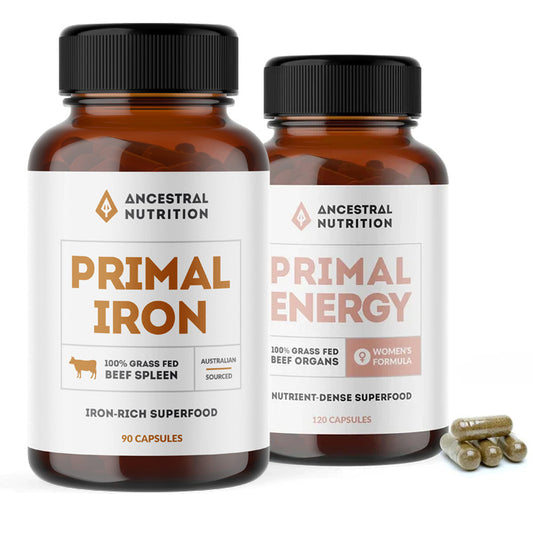Why You're Reacting To Foods You Used to Tolerate
article by Emily CollyerThe Rise of Food Sensitivities Explained
Did you know that 80% of your immune system lives in your gut?
What Is A Food Sensitivity?
- Food allergies (IgE antibodies): Immediate reaction, think peanuts or shellfish
- Food sensitivities (IgG): Delayed immune response (can take up to 3 days). Symptoms include - fatigue, brain fog, headaches, eczema, mood changes and digestive issues
- Food Intolerance: Digestive reaction only, usually within hours (think lactose intolerance)
Why Do Food Sensitivities Happen?
 (Dahia, 2025)
(Dahia, 2025)What Is The Solution?
-
Identify & Remove Inflammation Drivers
◦ Ultra processed foods (refined sugars, industrial oils, soy isolates, "gluten-free" junk) feed bad bacteria, trigger inflammation and damage the gut barrier.◦ Bad bacteria thrive on sugar, starch and processed carbs - producing toxins and worsening dysbiosis.◦ Nutrient deficiencies (low zinc, B12, omega 3's, iron and amino acids) weaken repair mechanisms and immune balance.◦ Environmental stressors (toxins, medications, sleep loss and stress) further disrupt gut-immune harmony.
-
Repair the Gut Lining
◦ High quality protein - grass-fed organ meats, pastured eggs, wild/low mercury fish (building blocks for tissue repair).◦ Bone broth and glutamine - strengthen gut barrier & immune tolerance.◦ Polyphenols, prebiotics, resistance starch - feed beneficial bacteria
-
Restore Microbiome & Immune Balance
◦ Nutrients: zinc, selenium, copper, iron for immune cell balance; omega 3's for lowering inflammation, vitamins A, D, E, B6, C for immune regulation and gut healing◦ Consider probiotics & plant diversity to support gut flora◦ Support Lifestyle (stress management, parasympathetic activation and quality sleep).
The Bottom Line
it's not just a trend, its a reflection of modern diets colliding with fragile guts.
References
Costa Bir, L. (2024). Herbs and nutrients to support gastrointestinal health. Bioceuticals.
Dahia, V. (29 C.E., August). Food Allergies and Food Intolerances . NutriPath.
Dahia, V. (29 C.E., August 2025). Food Allergies and Food Intolerances. Nutripath.
Hyman, M. (2024, September 13). The Root Cause of Stomach and Digestive Problems. https://drhyman.com/blogs/content/podcast-ep948?_pos=20&_sid=a5eb95a4e&_ss=r
Onyimba, F., Crowe, S. E., Johnson, S., & Leung, J. (2021). Food Allergies and Intolerances: A Clinical Approach to the Diagnosis and Management of Adverse Reactions to Food. Clinical Gastroenterology and Hepatology, 19(11). https://doi.org/10.1016/j.cgh.2021.01.025
Rennie, G. H., Zhao, J., Camus-Ela, M., Shi, J., Jiang, L., Zhang, L., Wang, J., & Raghavan, V. (2023). Influence of Lifestyle and Dietary Habits on the Prevalence of Food Allergies: A Scoping Review. Foods, 12(17), 3290. https://doi.org/10.3390/foods12173290
Shamji, M. H., Valenta, R., Jardetzky, T., Verhasselt, V., Durham, S. R., Würtzen, P. A., & van Neerven, R. J. J. (2021). The role of allergen‐specific IgE, IgG and IgA in allergic disease. Allergy, 76(12). https://doi.org/10.1111/all.14908














